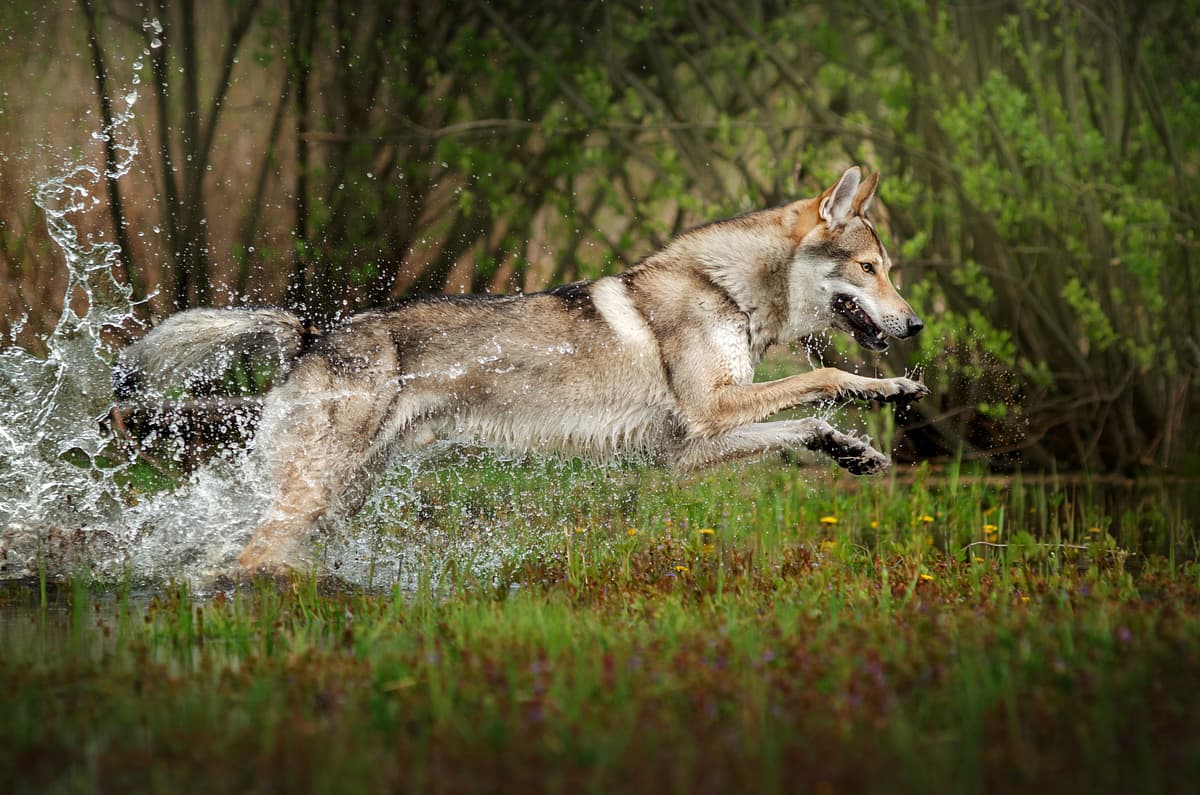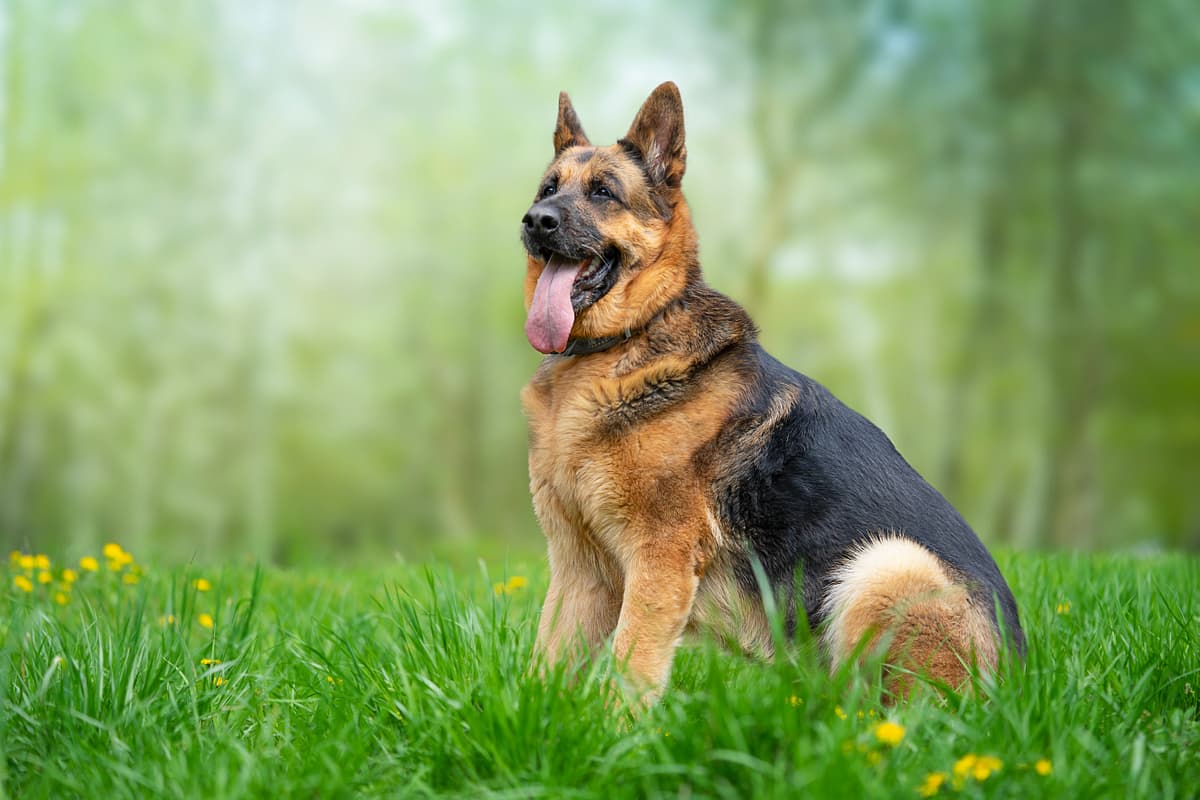Czechoslovakian Wolfdog vs German Shepherd
Discover the differences between Czechoslovakian Wolfdog and German Shepherd to make the best choice for your situation.
Try different breeds

Czechoslovakian Wolfdog
Athletic and highly intelligent, this breed thrives with active companions who appreciate challenge and adventure. Loyal yet independent, they form deep bonds and need consistent engagement.

German Shepherd
Confident, loyal, and highly intelligent, this breed thrives as both a devoted family companion and a reliable working partner. Always alert and eager to learn, it adapts to many roles with ease.
Quick comparison
Large
26–36 kg
Straight double coat, dense undercoat
12–16 years
20–29 kg
High energy
Large
30–40 kg
Double coat, dense undercoat
9–13 years
22–32 kg
High energy
Personality & behavior
Compare the personality traits and behavioral characteristics of both breeds.
Czechoslovakian Wolfdog
Wary with strangers, loyal to family members
Learns quickly, solves problems independently
Needs vigorous exercise and daily activity
Enjoys games but prefers purposeful activities
May struggle with changes in environment
German Shepherd
Warm with family, reserved with strangers
Quick learner, highly trainable and alert
Needs regular activity and vigorous exercise
Enjoys games, interactive and engaging
Adjusts well to new situations and environments
Care needs
Exercise, grooming, and daily care requirements
Czechoslovakian Wolfdog
Hip dysplasia, degenerative myelopathy
German Shepherd
Hip dysplasia, elbow dysplasia
Suitability
How well each breed fits different living situations and families
Czechoslovakian Wolfdog
Not ideal
Requires experienced handler due to strong instincts and training needs
Poor fit
Needs space and frequent exercise, not suited for confined living
Excellent match
Thrives with active owners who provide daily physical and mental challenges
Needs caution
May be too energetic and mouthy for small children without supervision
Not recommended
High prey drive and dominance can cause issues with other pets
Poor fit
Suffers from separation anxiety and becomes destructive when left alone long hours
German Shepherd
Challenging for beginners
Needs experienced, consistent training and socialization
Not ideal
Needs space and frequent exercise to prevent boredom
Perfect fit
Thrives with active owners who can provide daily physical and mental challenges
Highly suitable
Loyal and protective, can be gentle and patient with proper socialization
Usually compatible
Can get along with other pets if raised together and well socialized
Prone to anxiety
Dislikes being left alone for long periods and may develop behavioral issues
Breed strengths
What each breed excels at and their best qualities
Czechoslovakian Wolfdog
- Highly intelligent and quick to learn
- Exceptional endurance and stamina
- Strong loyalty to familiar people
- Versatile working and sporting abilities
- Very alert and responsive watchdog
German Shepherd
- Highly intelligent and quick to learn tasks
- Strong loyalty to family members
- Excellent working and service dog abilities
- Protective instincts make them good guardians
- Adaptable to various training activities
Challenges & considerations
Potential challenges and considerations for each breed
Czechoslovakian Wolfdog
- High prey drive around small animals
- Needs extensive daily physical exercise
- Can be wary of unfamiliar people
- Prone to stubbornness during training
- May develop separation anxiety if isolated
German Shepherd
- Prone to hip and elbow dysplasia
- High exercise needs require daily activity
- Can develop separation anxiety if left alone
- May be wary of strangers without socialization
- Heavy seasonal shedding requires frequent grooming
Ready to choose your perfect breed?
Learn more about each breed or compare other breeds to find the perfect match for your lifestyle.
Discover more helpful tools
Make use of our other free tools to get the most out of your pet experience
